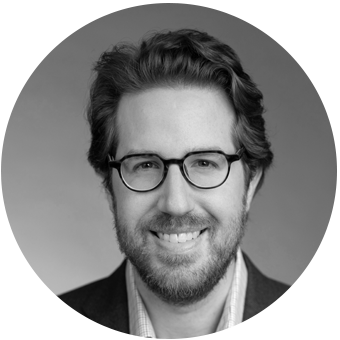o you really know how you come across to others? If you’re anything like me, you have some image in your mind of how people see you. Sometimes, the image is slightly better than the reality. Earlier today, for example, I glanced at a mirror while making a purchase at an electronics store and noticed that I put my hands on the counter in an awkward way. My first thought was, “Do I really do that?” I tend to think of myself as a cool, confident guy!
In other domains, that self-image could be grimmer than reality. For instance, in a recent meeting with my boss, I voiced an opinion and then apologized for coming across as overly critical. She immediately responded, “I didn’t perceive you that way at all!” I suddenly wished I hadn’t put that thought into her head.
We are constantly evaluating how we come across to others, and we are often wrong. Wouldn’t it be powerful to see ourselves as others see us, even just for a few moments? What would we discover about ourselves?
The bulk of my year is spent running our 360º feedback department at Learning as Leadership, a leadership development firm based in Northern California. During our leadership intensives, however, I’m behind a video camera recording everything that transpires between participants and facilitators. This enables participants to revisit exchanges that were especially powerful or difficult, allowing them to observe themselves “from the outside” in those heated moments. Throughout the years, this has resulted in some profound moments of self-awareness for participants.
For example, one participant was advised to review the recording of an exchange that took a confrontational turn. While watching the video, the participant laughed out loud — though he had adamantly denied he was angry during the exchange, the evidence was undeniable. It was a great lesson for him, and he saw how this disconnect had caused issues in many areas of his life. It’s worth mentioning that this person was in his early seventies — that’s seven decades of not being aware of how he felt internally and how that impacted those around him. It was meaningful for me to see someone many years my senior having this realization late — but not too late — in life.
On the other end of the spectrum was a middle-aged woman who was having trouble connecting to her passion. She saw herself as emotionally flat and couldn’t see a way forward with such low levels of energy and motivation. Then, during a morning check-in, she stood up and shared something very emotional about her relationship with her daughter. She was visibly moved, and later decided to revisit the moment on video. Watching herself standing in front of the room, animated by and present with her feelings, put a dent in her belief that she was passionless. Suddenly, she was more than she previously (and habitually) thought, and she could see the beginnings of a way out of her rut.
We are, for better and worse, more than we think we are. The camera might highlight our defensive side, or it may betray a secret reserve of vitality we didn’t know we had. If the camera can see those hidden dimensions of our personalities, then so can the people who interact with us day in and day out.
The challenge is, we tend to be attached to and defensive of our self-image, and this puts a cap on our capacity to fully utilize our strengths and transcend our limitations. At Learning as Leadership, we refer to the ego — defined as our constant preoccupation with our self-image or self-worth — as an anti-learning and anti-growth mechanism, and it’s easy to see why in the stories above. If the man with the short fuse hadn’t seen the video, he may have continued to be perplexed as to why others saw him as difficult, and thus felt powerless to do anything about it. If the woman hadn’t witnessed her burst of emotion for herself, her belief that she lacked passion may have kept her from earnestly searching for what was next.
The feedback that a video (or a mirror in a dusty electronics store) provides is undeniable, but most of us, me included, would prefer not to be on camera in our most difficult moments. Still, we can strive for a clearer view of ourselves by seeking feedback and encouraging those providing it to be as concrete as possible. When confronted with vague or judgmental feedback, I’ve found it helpful to ask, “What would a camera capture?” By asking this question, I’m really saying, “Help me see myself from the outside…and make it undeniable.”
